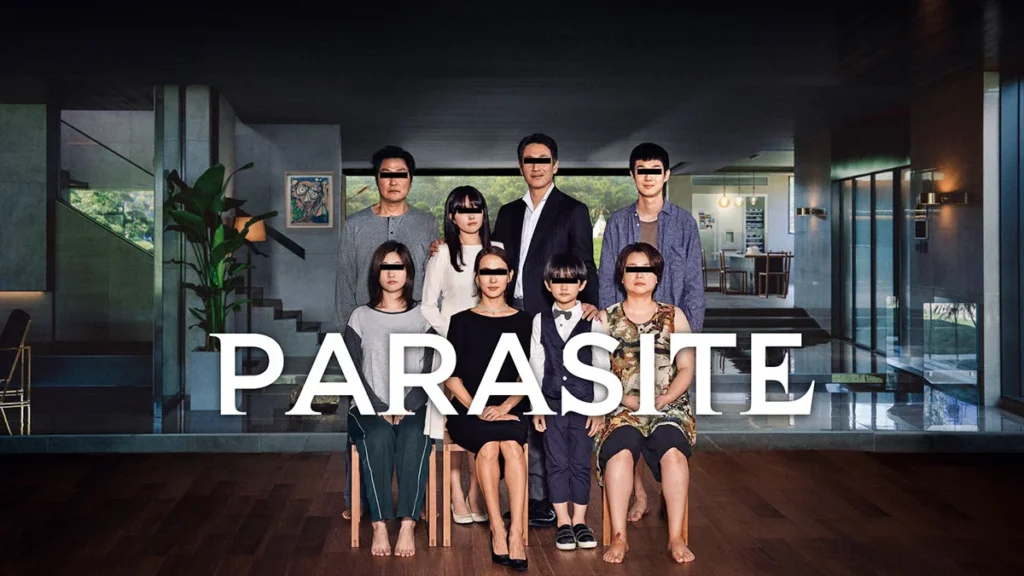When Bong Joon-ho’s Parasite made history by becoming the first non-English language film to win the Academy Award for Best Picture in 2020, it opened many viewers’ eyes to the incredible world of South Korean cinema. Parasite‘s dark humor, biting social commentary, and unpredictable plot twists captivated audiences around the globe. If you couldn’t get enough of the genre-bending thriller, here are 20 more phenomenal movies, primarily from South Korea, that share similar themes and tones to Parasite.
1. Burning (2018)

Directed by Lee Chang-dong, this slow-burn South Korean psychological thriller explores themes of class, obsession, and ambiguity. Based on a short story by Haruki Murakami, Burning follows an aspiring writer who becomes entangled with a mysterious wealthy businessman and a woman from his past.
The film is a mesmerizing character study that keeps you guessing until the very end. Steven Yeun delivers a chilling performance as the enigmatic Ben, while Yoo Ah-in perfectly captures the aimlessness and growing unease of the protagonist Jong-su. With its languid pacing, beautiful cinematography, and subtle exploration of economic disparity, Burning is a must-watch for fans of Parasite.
2. Shoplifters (2018)

Hirokazu Kore-eda’s Shoplifters is a poignant and intimate portrait of a makeshift family living on the margins of Japanese society. The film follows the Shibatas, a poor family who rely on petty crime to make ends meet. When they take in a young girl who appears to be abused, their tenuous existence is put at risk.
Like Parasite, Shoplifters offers a humanizing look at poverty and the lengths people will go to survive. But it also raises thought-provoking questions about the true meaning of family and belonging. With its naturalistic performances and slice-of-life storytelling, the film is a moving and ultimately hopeful exploration of the bonds that unite us.
3. Sorry to Bother You (2018)

Boots Riley’s absurdist dark comedy Sorry to Bother You takes on capitalism, code-switching, and the exploitation of workers in a wildly original and unpredictable way. The film follows Cassius “Cash” Green, a struggling telemarketer who discovers the key to success: using his “white voice.” As he rises up the corporate ladder, he becomes entangled in a bizarre conspiracy.
With its surreal visuals, biting satire, and stellar cast (including Lakeith Stanfield, Tessa Thompson, and Armie Hammer), Sorry to Bother You is a one-of-a-kind viewing experience. Like Parasite, it uses humor to expose the absurdities and injustices of the modern world.
4. Us (2019)
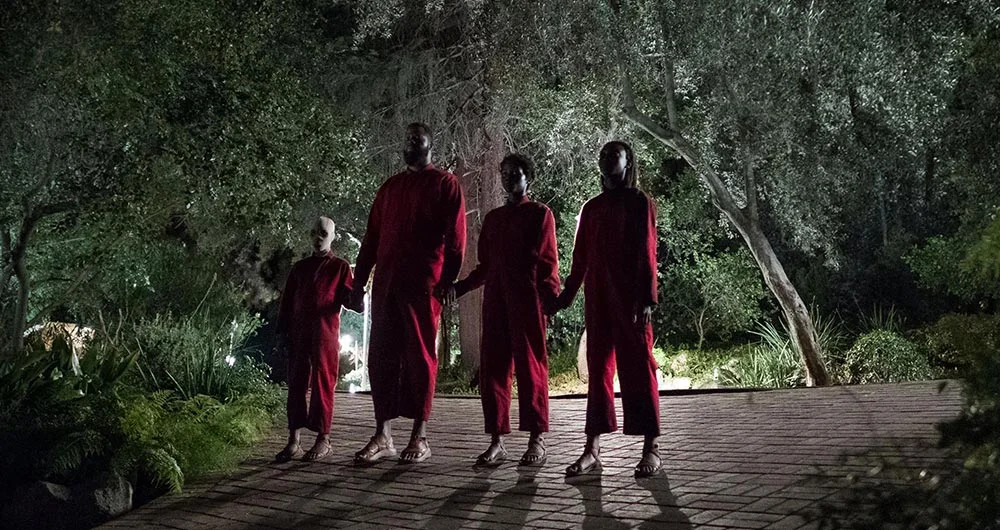
Jordan Peele followed up his breakout hit Get Out with another thought-provoking social thriller, Us. The film follows a family who are terrorized by their doppelgängers while on vacation. As the story unfolds, it becomes clear that these “tethered” individuals are part of a larger, more sinister phenomenon.
Us is a masterful blend of horror, comedy, and social commentary, with standout dual performances from Lupita Nyong’o and Winston Duke. Like Parasite, it uses genre tropes to explore deeper themes about class, privilege, and the dark underbelly of society.
5. Snowpiercer (2013)

Before Parasite, Bong Joon-ho tackled class warfare in the high-concept sci-fi thriller Snowpiercer. Set in a post-apocalyptic future where the remnants of humanity live on a perpetually moving train, the film follows a group of lower-class passengers who stage a revolt against the elite.
With its inventive premise, stunning visuals, and stellar international cast (including Chris Evans, Song Kang-ho, and Tilda Swinton), Snowpiercer is a gripping and thought-provoking ride. Like Parasite, it uses a confined setting to explore broader themes about inequality and the human condition.
6. The Handmaiden (2016)

Park Chan-wook’s erotic psychological thriller The Handmaiden transplants Sarah Waters’ novel “Fingersmith” to 1930s colonial Korea. The film follows a young pickpocket who is hired to serve as a handmaiden to a wealthy Japanese heiress, with the ulterior motive of helping a con man seduce and swindle her.
The Handmaiden is a sumptuous and twisty tale of love, betrayal, and revenge. With its lush visuals, sly humor, and provocative exploration of power dynamics, the film is a feast for the senses. Like Parasite, it subverts expectations and keeps you guessing until the very end.
7. The Servant (1963)
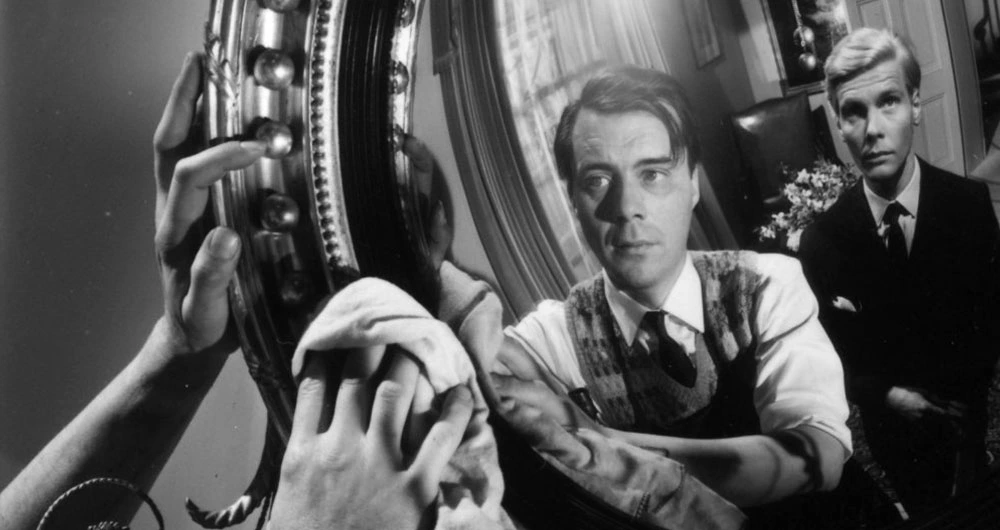
Joseph Losey’s British drama The Servant was a major influence on Bong Joon-ho, and it’s easy to see why. The film follows a wealthy young man who hires a valet to help manage his new house. As the servant gradually exerts more control over his master’s life, the power dynamic between them shifts in unsettling ways.
With its claustrophobic atmosphere, psychological tension, and biting class commentary, The Servant is a classic of British cinema. Dirk Bogarde delivers a chilling performance as the manipulative valet, while James Fox perfectly captures the naivete and weakness of the master. If you loved the slow-burn suspense and shifting power dynamics of Parasite, The Servant is essential viewing.
8. Gosford Park (2001)

Robert Altman’s star-studded murder mystery Gosford Park is a witty and incisive upstairs-downstairs drama set in an English country estate in the 1930s. The film follows the aristocratic hosts and their servants over a weekend shooting party, during which a murder occurs.
With its large ensemble cast (including Maggie Smith, Helen Mirren, and Clive Owen), intricate plot, and satirical commentary on class and privilege, Gosford Park is a delight from start to finish. Like Parasite, it uses the microcosm of a wealthy household to expose the larger hypocrisies and inequalities of society.
9. Memories of Murder (2003)

Before Parasite, Bong Joon-ho made his mark with the true crime thriller Memories of Murder. Based on the real-life hunt for South Korea’s first serial killer, the film follows two detectives as they try to solve a series of brutal murders in a small town.
Memories of Murder is a gripping and atmospheric police procedural that subverts the typical tropes of the genre. With its dark humor, social commentary, and haunting final shot, the film showcases Bong’s signature style and themes. If you loved the genre-bending and unexpected twists of Parasite, Memories of Murder is a must-see.
10. Mother (2009)

Another gem from Bong Joon-ho, Mother is a gripping and emotionally complex thriller about a mother’s fierce love for her son. When her mentally disabled adult son is accused of murder, a widow goes to increasingly desperate lengths to prove his innocence.
With its twisty plot, dark humor, and powerful central performance by Kim Hye-ja, Mother is a masterful exploration of the lengths we’ll go to protect our loved ones. Like Parasite, it uses a crime story to explore deeper themes about family, class, and the failings of society.
11. The Host (2006)

Bong Joon-ho’s monster movie The Host is a thrilling and surprisingly heartfelt creature feature with a social conscience. When a giant mutated monster emerges from the Han River and starts attacking people, a dysfunctional family must band together to save their youngest member.
With its mix of horror, humor, and political commentary, The Host showcases Bong’s ability to blend genres and tones. The film’s critique of American militarism and environmental destruction adds depth to its pulse-pounding set pieces. If you loved the genre-defying thrills of Parasite, The Host is a must-watch.
12. The Ruling Class (1972)

Peter Medak’s black comedy The Ruling Class is a biting satire of the British aristocracy. The film follows a paranoid schizophrenic British nobleman who believes he is Jesus Christ. When he inherits his father’s estate, his family tries to have him committed in order to get their hands on his fortune.
With its irreverent humor, sharp social commentary, and tour-de-force performance by Peter O’Toole, The Ruling Class is a wild and audacious ride. Like Parasite, it uses dark comedy to skewer the privileged and powerful.
13. The Exterminating Angel (1962)

Luis Buñuel’s surrealist classic The Exterminating Angel is a scathing critique of the bourgeoisie. The film follows a group of wealthy dinner party guests who find themselves inexplicably unable to leave the room, leading to a breakdown of social order.
With its absurdist premise, biting satire, and haunting imagery, The Exterminating Angel is a one-of-a-kind viewing experience. Like Parasite, it uses a single location to explore the fragility of social hierarchies and the savagery lurking beneath the veneer of civilization.
14. Society (1989)
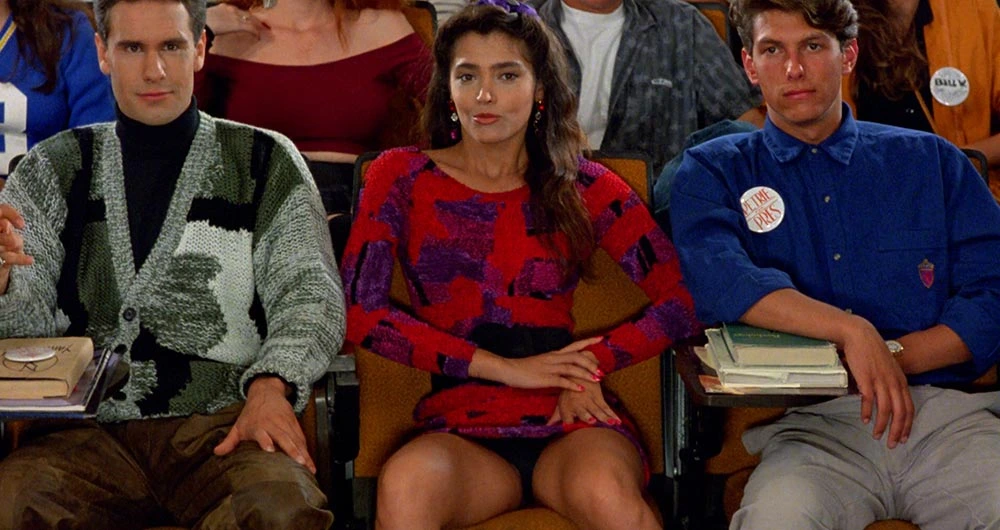
Brian Yuzna’s body horror satire Society takes the concept of “the rich feeding off the poor” to grotesque extremes. The film follows a Beverly Hills teenager who suspects that his wealthy family and their social circle are involved in a sinister conspiracy.
With its gross-out practical effects, biting social commentary, and jaw-dropping climax, Society is a cult classic for a reason. Like Parasite, it uses horror and humor to expose the ugly realities of class exploitation.
15. Ready or Not (2019)

Matt Bettinelli-Olpin and Tyler Gillett’s horror comedy Ready or Not is a wildly entertaining take on the “eat the rich” subgenre. The film follows a newlywed bride who finds herself fighting for her life when her wealthy in-laws hunt her as part of a bizarre wedding night ritual.
With its fast pace, dark humor, and game cast (including a standout Samara Weaving), Ready or Not is a blast from start to finish. Like Parasite, it uses a high-concept premise to deliver thrills and social commentary in equal measure.
16. The People Under the Stairs (1991)
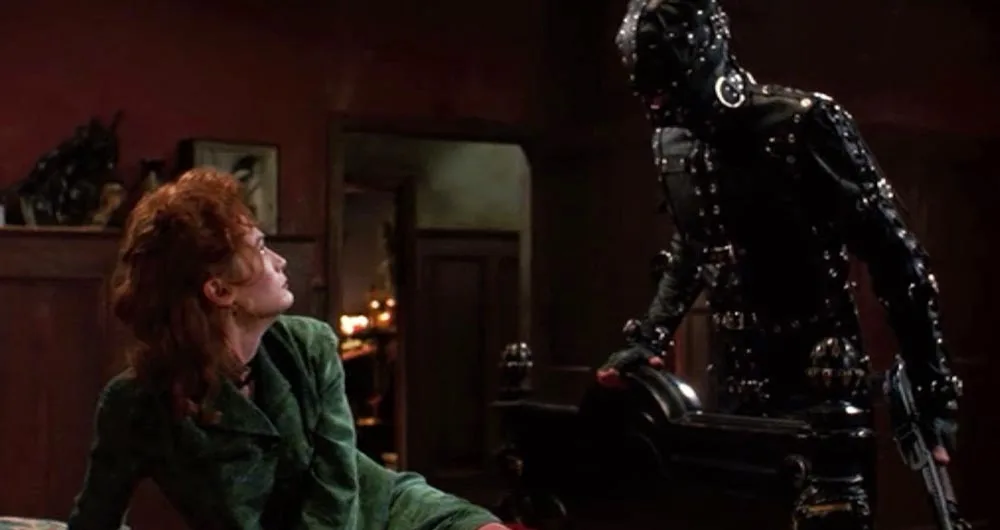
Wes Craven’s horror satire The People Under the Stairs takes on gentrification, racism, and economic exploitation in a wild and gory package. The film follows a young boy and two adult thieves who break into a suburban house, only to discover a disturbing secret in the basement.
With its over-the-top villains, social commentary, and memorable set pieces, The People Under the Stairs is a one-of-a-kind horror movie. Like Parasite, it uses a home invasion premise to explore the dark underbelly of American society.
17. Panic Room (2002)

David Fincher’s taut thriller Panic Room follows a mother and daughter who must outwit a trio of burglars from the confines of their new home’s secure room. As the criminals become more desperate and violent, the two women must use their wits and resourcefulness to survive.
With its clever premise, nail-biting suspense, and stellar performances from Jodie Foster and a young Kristen Stewart, Panic Room is a masterclass in tension. Like Parasite, it uses the confines of a house to explore power dynamics and the lengths people will go to protect themselves and their loved ones.
18. Burn After Reading (2008)

The Coen Brothers’ absurdist spy comedy Burn After Reading follows a group of dimwitted characters who get embroiled in a convoluted plot involving a CIA agent’s memoirs, blackmail, and murder. As the scheme spirals out of control, the film becomes a darkly hilarious meditation on greed, stupidity, and the human condition.
With its stacked cast (including Brad Pitt, Frances McDormand, and George Clooney), quotable dialogue, and pitch-black humor, Burn After Reading is a Coen Brothers classic. Like Parasite, it uses a crime story to expose the foibles and failures of its characters.
19. The Rules of the Game (1939)

Jean Renoir’s satirical masterpiece The Rules of the Game follows the romantic entanglements and class tensions among a group of French aristocrats and their servants during a weekend hunting party at a country chateau. As the characters navigate the complex social codes and unspoken rules that govern their lives, the film becomes a biting critique of the hypocrisy and moral decay of pre-war French society.
With its elegant cinematography, witty dialogue, and incisive social commentary, The Rules of the Game is a timeless classic. Like Parasite, it uses a microcosm of society to expose the larger fault lines and injustices of the world.
20. The Chambermaid (2018)

Lila Avilés’ quiet and powerful drama The Chambermaid follows a young maid working in a luxurious Mexico City hotel. As she goes about her daily routine of cleaning rooms and tending to guests, the film offers a poignant and humanizing portrait of invisible labor and the people who perform it.
With its understated style, strong central performance, and keen observation of class dynamics, The Chambermaid is a moving and thought-provoking film. Like Parasite, it uses the intimate details of everyday life to illuminate larger social and economic realities.
These 20 films showcase the incredible range and depth of South Korean cinema, from pulse-pounding thrillers to emotionally resonant dramas to thought-provoking social commentaries. Each one shares some of the key elements that made Parasite such a global phenomenon: masterful storytelling, complex characters, dark humor, and a willingness to tackle difficult themes and social issues. Whether you’re a die-hard fan of Parasite or simply looking to expand your cinematic horizons, these movies are sure to leave a lasting impression. So grab some popcorn, settle in, and prepare to be thrilled, moved, and provoked by some of the best that South Korean cinema has to offer.
